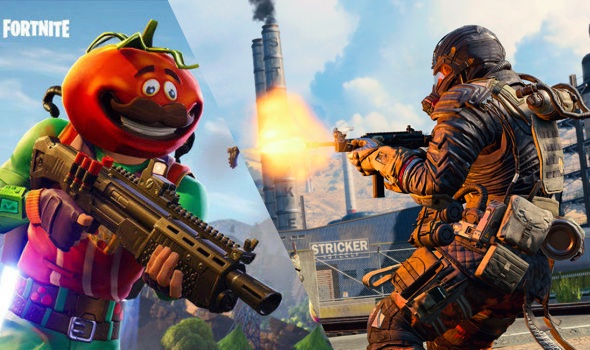Share this story:
The free-to-play first-person shooter, Fortnite: Battle Royale, emerged as an overnight phenomenon late last year, and has managed to maintain its status as the “the most important video game on the planet” ever since.
However, in recent weeks, several external factors — along with many internal challenges presented by the nature of the game itself — have mounted to challenge Fortnite’s seemingly unstoppable growth, leading fans and followers to wonder whether the Fortnite Fever is about to break.

Most recently, the highly-anticipated arrival of the latest installment in the Call of Duty: Black Ops series has inspired much debate on social media about whether the franchise’s first battle royale mode, called “Blackout,” could threaten Fortnite’s tight grip on the audience. Since the release of the “Blackout” beta, viewers watching Blackout streams on Twitch outnumbered Fortnite viewers, which is no easy feat. Meanwhile, hashtags like #FortniteKiller and #RIPFortnite bubbled up on Twitter and elsewhere throughout the weekend, usually being used by “Blackout” fans praising the new game.
Long before “Blackout” came onto the battle royale scene, though, Fortnite players and developers at Epic Games have disagreed about the balancing of weapons in the game. This has been a point of contention for even some of Fortnite’s most loyal and vocal supporters, including Tyler “Ninja” Blevins, the most famous Fortnite streamer in the world, who often shares his opinions about the subject on stream and via his Twitter account.
Fortnite has also suffered under the weight of its own popularity. The opportunity for Ninja and many other professional Fortnite players to make a living by playing Fortnite on Twitch, YouTube and elsewhere is one of the most exciting and intriguing aspects of the phenomenon surrounding the game — in this reporter’s humble opinion — but it has also resulted in an incredibly large group of people that play the game professionally, or at least, at a skill-level that can only be achieved by those who are able to practice for many hours a day, day in and day out.
And due to the nature of the 100-player matchmaking system, these professionals are parachuting onto the same island as everyone else, including the casual default-skins like myself. This makes the game nearly impossible to win, and increasingly intimidating for newer fans who may be just now be learning the game’s mechanics.
In a recent video, Lannan “LazarBeam” Eacott — one of the most popular Fortnite players on YouTube with more than 5 million subscribers — explained that he prefers to record his videos within the game’s private, sandbox-style Playground Mode, rather than during normal gameplay (during a real match) because the servers are so heavily saturated with Twitch streamers like Ninja, who are next-to impossible to beat, which makes recording in-game clips all the more challenging.
Put simply, if one of the most famous Fortnite players in the world struggles to get Victory Royales, the outlook is pretty bleak for us casual players.
And while these factors and more are likely suggesting some future fall from grace, it feels important that we acknowledge just how long the developers at Epic games have managed to keep its players engaged in a video game as repetitive and seemingly unchanging as a battle royale.
The near-daily updates to the game, along with countless easter eggs and frequent adoption of new game modes have kept Fortnite’s millions of fans worldwide coming back for more again and again this year, while the game’s multi-platform crossplay and adaptation of mobile play enabled Fortnite to eventually earn a billion dollars in in-game purchases. These feats were, in many ways, unprecedented in the world of free games, and elevated Fortnite beyond its status as a mere overnight sensation.
There was a time when many of us found ourselves wondering whether this shining star would burn out as quickly as it had emerged, as so many other games seem to do nowadays. Today, it is clear that despite any inevitable drop-off in monthly downloads or concurrent viewers that may transpire, Fortnite is running no risk of dropping out of the public eye any time soon.
Fortnite Fever may be coming to an end, but the game has graduated to lasting, genre-defining greatness that is unlikely to be matched for years to come.